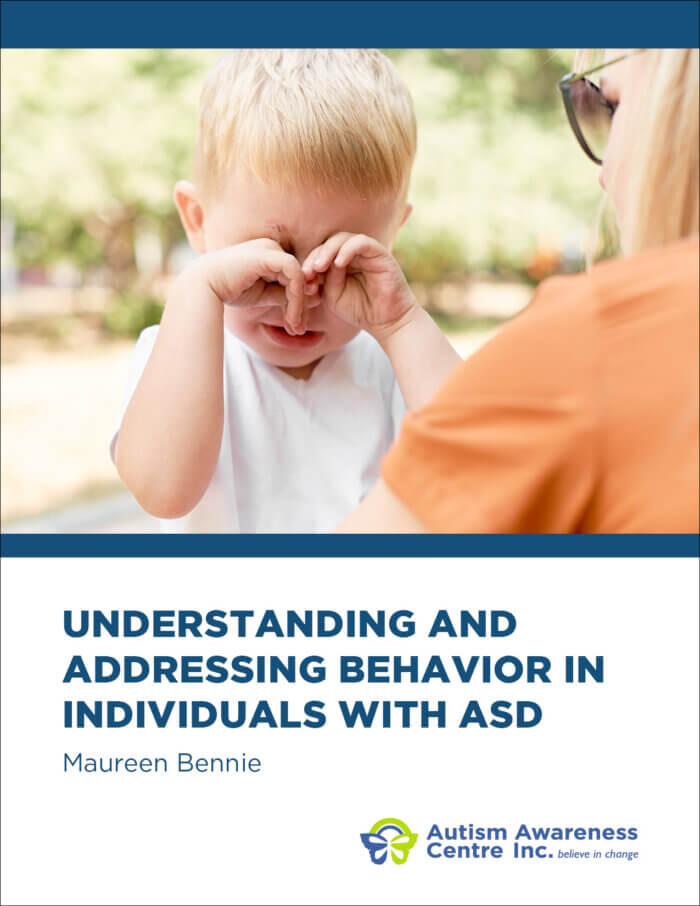
What is anger rumination and how does it affect individuals with ASD?
Have you ever experienced challenging behavior like a meltdown, hostility, anger, or aggression when supporting a person with autism spectrum disorder (ASD)? Did the incident seem to come out of the blue? More than likely, there was a trigger that you didn’t notice or something that was building for a period of time. That “something” could be anger rumination.
What is anger rumination?
Anger rumination is a cognitive-emotional process referring to the tendency to dwell on frustrating experiences and recall past anger experiences (Sukhodolsky et al. 2001). More generally, rumination represents a maladaptive form of emotion processing that entails remaining focused on the stressor through repetitive and passive dwelling upon distress, past mistakes, regrets, and short-comings (Nolen-Hoeksema 1991; Nolen- Hoeksema et al. 2008). Rumination may inhibit the use of cognitive control strategies such as reappraisal (being able to assess something or someone again or in a different way) and problem solving, due to the prolongation of emotional distress.
Anger rumination can deplete self-regulatory resources, leading to reduced behavioral inhibition (Kashdan et al., 2009). Social anxiety could also lead to anger rumination, which in turn could lead to hostility or expressions of anger.
Anger rumination is also positively correlated with autism symptom severity. It is also associated with poorer functioning, including more depression symptoms and overall emotional and behavioral dysregultion. (Patel et al. 2017). Rumination may also be a factor in other forms of challenging behavior such as disruptive behaviors (irritability, anger and aggression).
Perseveration
Repetitive thoughts and dwelling on negative incidents can make a person become “stuck”. This fixation can also be called perseveration. Perseverative thoughts can happen because a person may be trying to manage stress, process information, shift attention, can’t stop thinking about certain things, or can’t control behaviors.
Perseveration may look like:
- worrying about something that might happen because it happened in the past
- having difficulty getting past being angry or scared
- continuing to ask the same question long after getting an answer to the question
- going over previous conversations or interactions in the mind (also known as looping thoughts)
- repeating an action over and over again (also known as repetitive or restrictive behaviors)
- repeatedly talking about something that happened a long time ago
- giving the same answer to a different set of questions, even if it makes no sense
Rumination and Mental Health Issues
Autism spectrum disorders often present with comorbidities, particularly mental health issues. Many mental health conditions can cause rumination, but rumination may also intensify the symptoms of some pre-existing conditions. In an article from Medical News Today, these examples of mental health issues and rumination were given.
Depression: A person with depression may ruminate on very negative or self-defeating thoughts. For example, they may obsess over a belief that they are unworthy, not good enough, or doomed to fail.
Anxiety: People with anxiety may ruminate on specific fears, such as the idea that something bad will happen to their family. Or they might ruminate more generally, continually scanning their mind for things that might go wrong.
Obsessive-compulsive disorder (OCD): People with OCD may feel overwhelmed by intrusive thoughts about things that could go wrong. To relieve these thoughts, they may engage in rituals, such as checking door locks, cleaning, or counting.
Phobias: People with phobias may ruminate on their fears, especially when they encounter the source of their phobia. For example, a person with a spider phobia may be unable to think about anything but their fear when in the same room as a spider.
Schizophrenia: People with schizophrenia may ruminate on unusual thoughts or fears, or they might feel distracted by intrusive voices and hallucinations. A 2014 study found that people with schizophrenia who ruminate on the condition’s associated social stigma might be more vulnerable to depression.
Rumination, Emotional Dysregulation, and Repetitive or Restrictive Behaviors (RRBs)
In a recent study, researchers looked at the association between rumination and RRBs contributing to overall emotional dysregulation in ASD. They found there may be common underlying deficits in cognitive control neural circuitry. Anger rumination may possibly be part of the core ASD symptoms, particularly RRBs (rigid thinking, insistence on sameness and perseveration). Difficulty in stopping perseverative thoughts may predispose children with ASD to engage in rumination. Impairments in emotional reactivity and cognitive control in combination with RRB’s may inhibit the use of adaptive emotional regulation strategies such as problem solving. These impairments may in turn predispose children with ASD to an increased risk for developing comorbid psychiatric disorders.
This becomes a cycle because deficits in cognitive control and using maladaptive strategies like rumination can prevent a person from using a more effective strategy like problem solving. Engaging in anger rumination or ruminative thoughts in general could be tied into deficits in emotional regulation in ASD. The correlation of anger rumination, emotional dysregulation and RRBs could make children with ASD more susceptible to a risk of disruptive behaviors.
What can help with ruminating thoughts?
Reduce Anxiety – There are many strategies to reduce anxiety so try using a variety of strategies to build your toolbox.
Exercise – Being physically active can reduce stress and increase feelings of well-being. Don’t know where to start? Have a look at our physical activity article.
Get Outside in Nature – There are a number of studies done on the benefits of nature . Walking in nature can reduce perseverative thoughts. My son goes on a hike once a week and we have seen improvement in his moods.
Distraction – While this may not work every time, providing a distraction can take a person’s mind off what it bothering them. For my daughter Julia, there are couple of cat videos that change her mood instantly. Talking about favorite topics and interests can stop ruminating thoughts.
Meditation or meditation techniques – Our son developed his own over the years to classical music. He spends an hour every Monday meditating in his room. He closes his eyes and breathes deeply. There are also books on mindfulness practice, but keep in mind that not every person with autism can do this successfully. For more ideas on mindfulness, have a look at this article which also has a great reference section.
Develop Interoceptive Awareness – Interoception is considered to be the eighth sense and tells us a lot about our internal state – are we hungry, tired, thirsty, hot, cold, or in pain. It is also tied into our emotions and self-regulation. Being able to understand how these emotions feel in the body and mind could also potentially help with rumination.
Future Study of Anger Rumination
Researchers feel that further study of this topic is needed to better understand the role of perseveration and ASD, and if these tendencies are associated with anxiety, disruptive behavior and depressive symptoms. Could perseveration be used in interventions to recall positive personal memories rather than negative ones? We also can’t discount the increased prevalence of trauma in children with ASD and the role that rumination may play in strengthening the association between trauma symptoms and anger. For example, how might the traumatic effects of bullying be related to anger rumination and core ASD symptoms? There may also be gender differences with anger rumination. So much to think about…
References
Editorial Policy: Autism Awareness Centre believes that education is the key to success in assisting individuals who have autism and related disorders. Autism Awareness Centre’s mission is to ensure our extensive autism resource selection features the newest titles available in North America. Note that the information contained on this web site should not be used as a substitute for medical care and advice.

